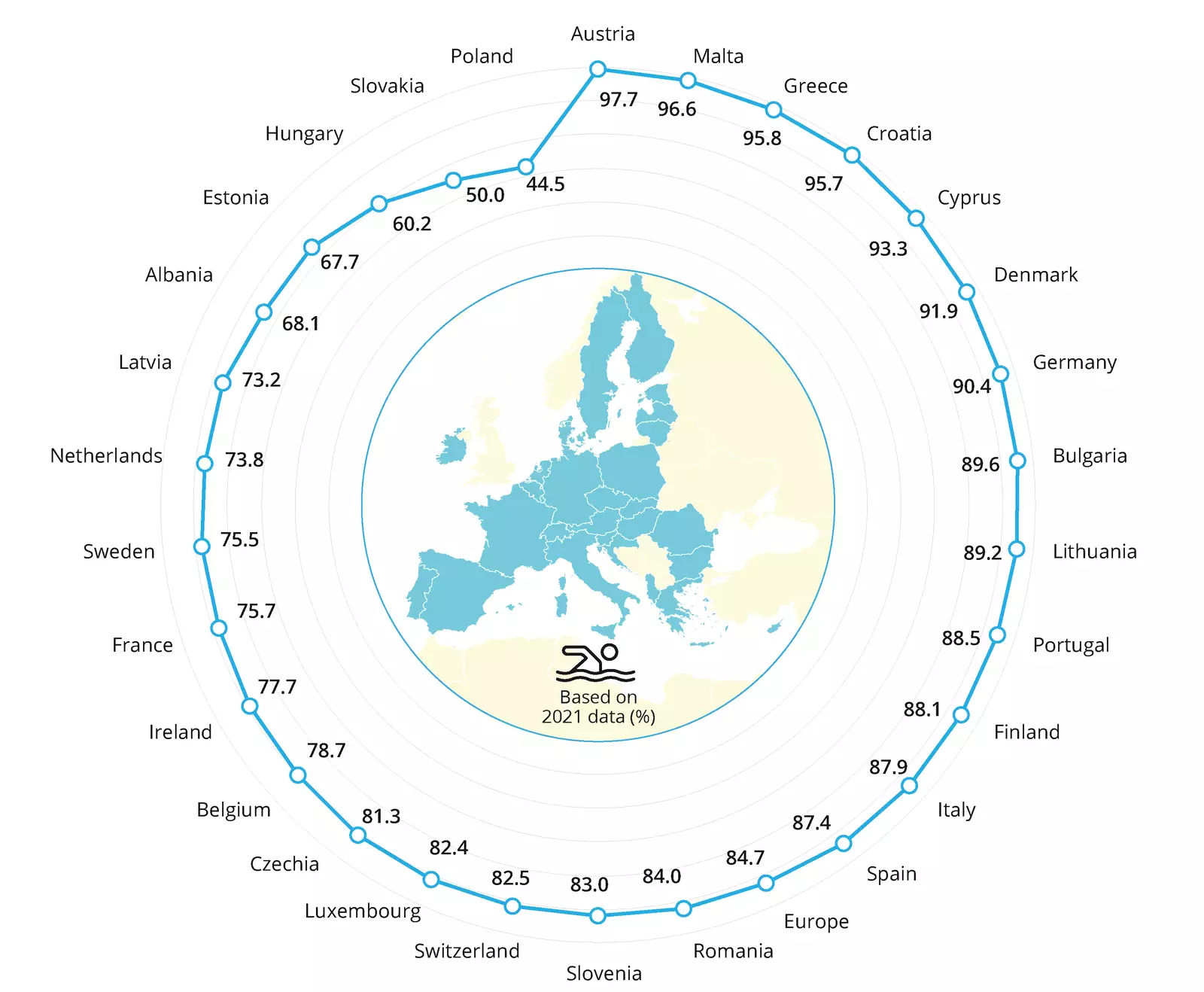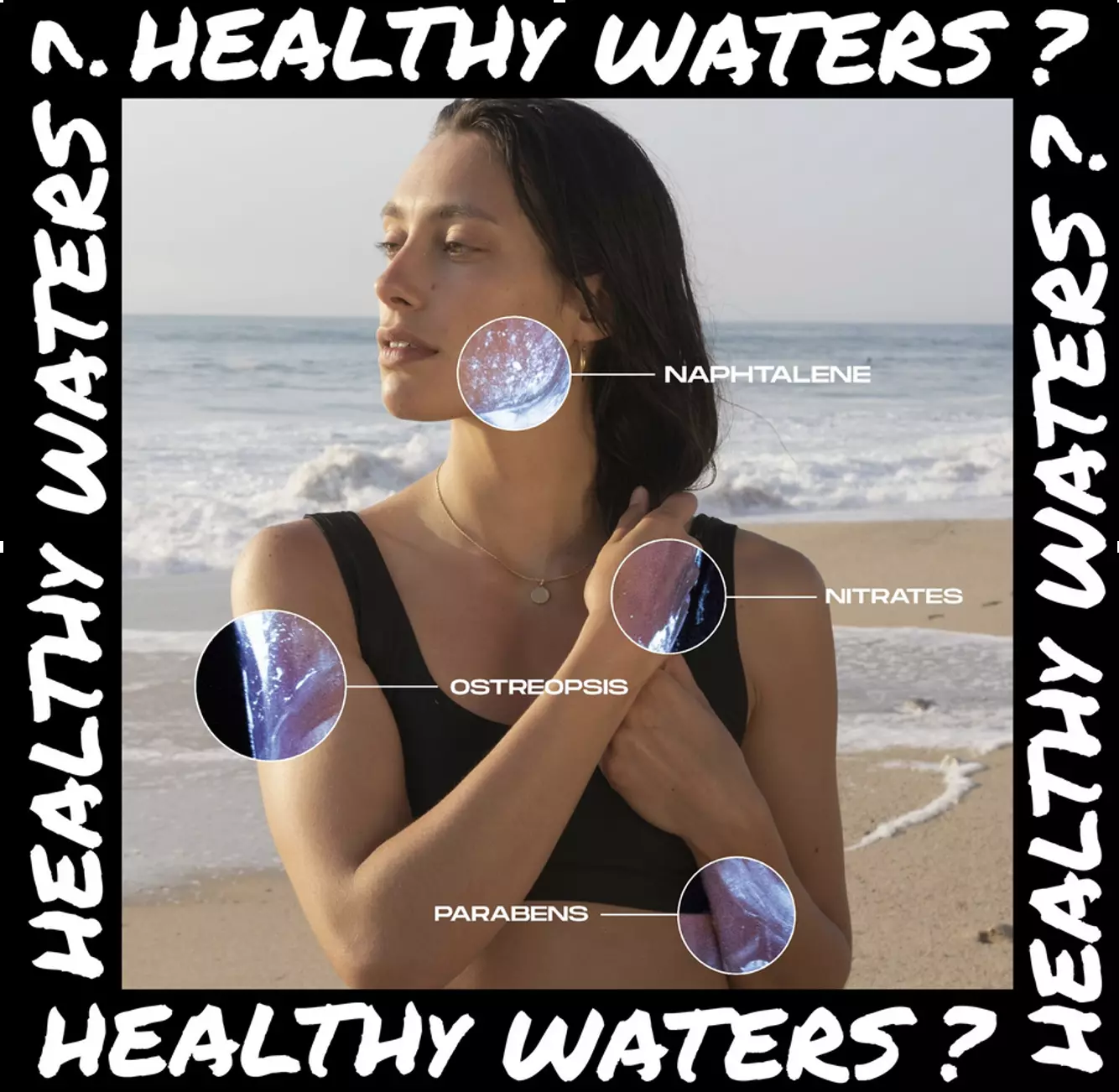When summer arrives, most people bathe carefree in beaches, rivers or natural pools thinking that the quality of the water is good enough to do so. In fact, why should we think that it is not if they are open to the public.
The truth is that on average water quality in bathing areas in Europe is good This is confirmed by the latest report from the European Environment Agency. “Since the adoption of the Bathing Water Directive in 2006, the proportion of excellent sites has grown continuously; in 2021 it accounted for 84.8% of bathing areas in the EU . The minimum water quality standards were met in 95.2% of the places”, they underline.
The 2022 annual report on the quality of European bathing waters in 2021 , recently published, points out that there are differences between bathing areas on the coast and those inland. And in this sense, in 2021, 88.0% of coastal bathing areas in the EU were classified as excellent quality , compared to 78.2% of the interior areas.

The proportion of quality in the bathing areas of Europe this 2021.
Currently, 21,859 bathing areas are officially recorded in Europe (223 more than the previous year), as well as 119 in Albania and 189 in Switzerland. The proportion of poor quality places has decreased since 2013 . In 2021, bathing water in poor condition made up 1.5% of all bathing areas in the EU, compared to 2% in 2013.
Secondly, the report notes that the proportion of excellent bathing waters has remained stable in recent years. In the period 2015-2021, the proportion of bathing waters in excellent condition in Europe has remained stable at 85-88% for coastal bathing waters; and 77-81% for internal bathing waters.
According to this map, the best water quality in Europe is in Austria, Malta, Greece and Croatia. Spain is in 13th place.
ARE THESE DATA REAL?
The data of the European Environment Agency they are based on testing done during the bathing season, when local and national authorities take samples of the water and test it for the types of bacteria that indicate contamination from sewage and livestock farming. "The contaminated water can have impacts on human health, causing stomach upset and diarrhea if ingested. Based on the levels of bacteria detected, the quality of the bathing water was classified as 'excellent', 'good', 'adequate' or ' bad", they explain.
However, there are organizations that question these results, taking into account the current contamination. This is stated in a statement Surfrider Foundation Europe , an NGO created in 1990 that has been working for more than 30 years to protect the oceans, the coastline, the waves and their users with a team of experts and 50 voluntary delegations in 12 European countries.
They rely on the data released by The Lancet magazine, which announced that contamination was responsible for 9 million deaths a year worldwide , a figure that has remained stable since 2015.

The Lancet reported that toxic chemical pollution has posed a growing – but largely neglected – threat in recent years. "This is a worrying figure that underlines, if necessary, how urgent it is to apply the precautionary principle and review the water quality monitoring indicators," says alarmed Lucille Labayle, head of the Water Quality Campaign and Health from Surfrider Foundation Europe.
With these statements, Lucille refers to the parameters that are not being taken into account in the analysis of European waters. One of the recommendations in the Surfrider Foundation manifesto refers to the addition of new parameters to be monitored, such as residues, harmful algal blooms and chemical pollutants, which are currently only partially or not directly taken into account. Those are considered.
And they add: “Regarding chemical contamination In particular, while the Surfrider Foundation welcomes the announcement of a possible review of the list of chemical contaminants – including emerging substances in the broader framework of European water legislation – it remains unfortunate that this concern remains unlisted. the considerations of the Directive on the quality of bathing waters”.
